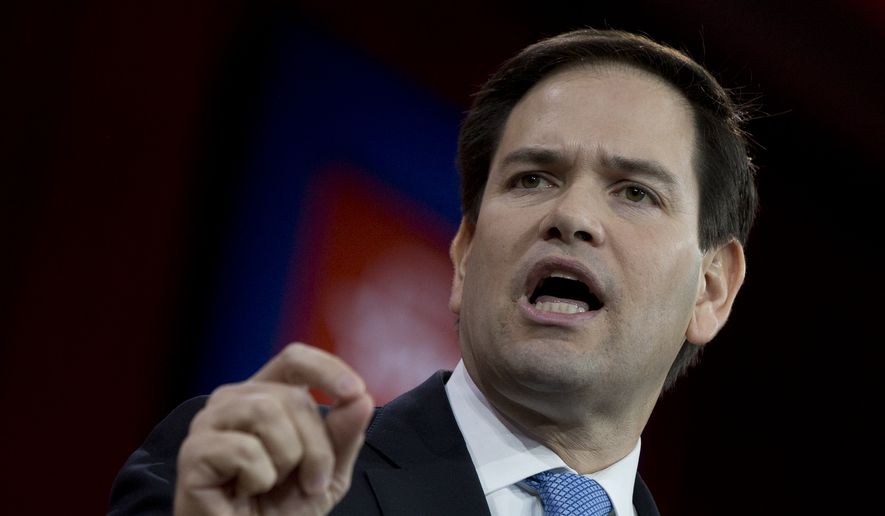Sen. Marco Rubio weighed in on the new chaos in Yemen by surmising that much of the administration’s current strategy in the region is being driven by a desire to keep Iran at the negotiating table on a nuclear deal.
“This is about Iran — again, the source of instability in the region and in many parts of the world,” he said Wednesday evening on Fox News’ “On the Record with Greta Van Susteren.” “These are Shia militias and Shia rebels that are continuing to make advances there, and they are equipped and protected and supported by Iran, and it’s part of their strategy to become the dominant regional power. It’s part of encircling Saudi Arabia, a Sunni country.”
Saudi Arabia and allies have started airstrikes in a bid to turn back Iranian-backed Houthi rebels in Yemen, and the White House announced Wednesday evening that President Obama has authorized the provision of “logistical and intelligence support” in the effort.
“So you see now their presence in Yemen; they’ve basically invaded Iraq, obviously the influence [they] have in Lebanon, they control Assad in Syria,” Mr. Rubio said. “So slowly but surely they are carrying out their master plan of regional dominance, and Yemen is the latest piece of that puzzle.”
At the same time, a U.S.-led coalition is also launching airstrikes in and around Tikrit to support Iraqi Security Forces ground operations, which are actually fighting alongside Shiite militia forces backed by Iran against the Islamic State terrorist group.
“While Iran is carrying out this plan of master regional dominance, we’re at the negotiating table with them, and I continue to believe that much of our strategy in the region at this point is being driven by a desire not to offend them so they don’t get up and walk away from the negotiating table,” Mr. Rubio said.
Mr. Rubio, a potential 2016 GOP presidential candidate, also blasted Mr. Obama for what he called “a history now of miscalculation and misjudgment, or quite frankly of just refusing to accept the facts of what’s happening.”
“They’re always more interested in the domestic political spin, and getting credit domestically for something, than they are in the truth about it. So time and again, we’ve seen them fail as a result of that,” he said.
“And so it leads us to believe that they’ve been wrong so often about the true threat of ISIS, about the status of Al Qaeda, about holding up Yemen as an example of counterterrorism excellence,” he continued. “How can we now trust that they’re going to do, for example, a deal with Iran that’s going make sense for the world and keep us safer? This is an administration that has a history of being wrong, and they’re going to be wrong again when it comes to Iran.”
• David Sherfinski can be reached at dsherfinski@washingtontimes.com.




Please read our comment policy before commenting.